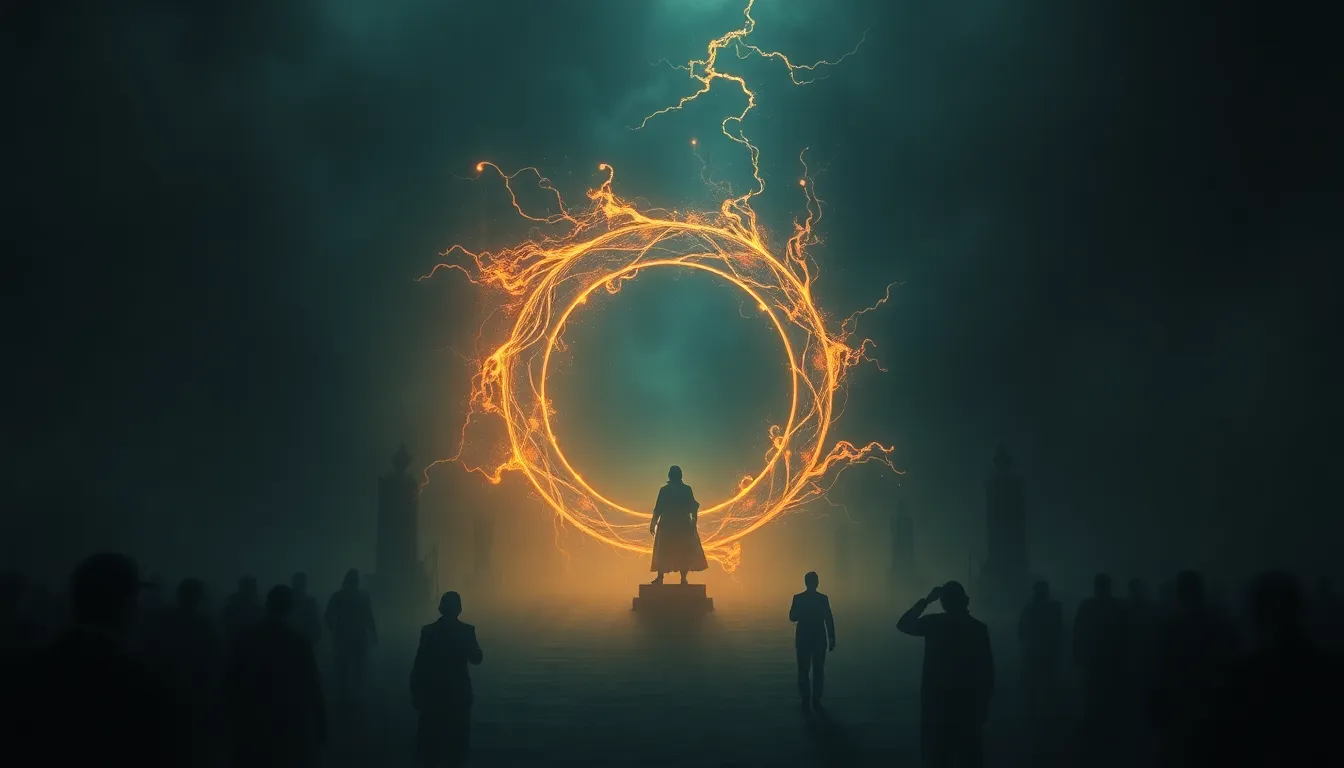The Ring of Gyges: Power and the Ethics of Invisibility
Introduction to the Ring of Gyges
The myth of the Ring of Gyges originates from Plato’s “Republic,” where it serves as a profound philosophical allegory. This myth tells the story of a shepherd named Gyges who discovers a ring that grants him the power of invisibility. With this newfound ability, Gyges is able to act without fear of repercussions, leading him to commit acts that reveal the darker side of human nature.
The significance of the Ring of Gyges lies in its symbolism of power and morality. It raises critical questions about human behavior when one is free from the scrutiny of society. How would individuals act if they knew they could escape judgment and consequence? This myth invites us to explore the intricate relationship between power, ethics, and the human condition.
The Concept of Invisibility: Implications and Interpretations
Invisibility, in the context of the Ring of Gyges, refers to the ability to act without being seen or held accountable. This concept has been explored throughout history and philosophy, leading to various interpretations:
- Philosophical Interpretations: Many philosophers have pondered the ethical implications of invisibility. Some argue that it reveals the true nature of individuals—free from societal constraints, they may indulge in immoral acts.
- Historical Context: Throughout history, invisibility has been associated with anonymity and the ability to evade justice. In contexts such as warfare or espionage, the unseen can act with impunity.
The psychological impact of being unseen can lead to a disconnection from moral responsibility. When individuals feel they can act without facing the consequences, their behavior may shift towards self-interest rather than a collective ethical stance.
The Nature of Power: What the Ring Represents
The Ring of Gyges is a potent symbol of power dynamics. It illustrates how the allure of power can corrupt even the most virtuous individuals. The ring’s power can be analyzed in several ways:
- Modern Authority: The power represented by the ring parallels contemporary concepts of authority and influence, such as political power, corporate dominance, and social media influence.
- Corruption of Power: The notion that power corrupts is a recurring theme in literature and philosophy. The Ring of Gyges exemplifies this by showing how unchecked power can lead to immoral actions.
Ethical Considerations: The Morality of Unchecked Power
Examining the ethical theories related to power and morality reveals profound insights. Key considerations include:
- Consequences of Unchecked Power: Acting without accountability can lead to destructive outcomes. Historical figures such as dictators and tyrants exemplify how power can be abused when individuals believe they are beyond reproach.
- Ethical Theories: Different ethical frameworks, such as utilitarianism and deontology, provide varying perspectives on the morality of actions taken under the guise of invisibility.
Through the lens of these theories, we can understand the ramifications of actions taken without moral consideration. The consequences often extend beyond the individual, affecting communities and societies at large.
The Ring of Gyges in Contemporary Society
In today’s digital age, the Ring of Gyges finds modern parallels, particularly with the anonymity afforded by the internet. Key aspects include:
- Anonymity Online: The internet allows individuals to act without revealing their identities, leading to both positive and negative behaviors. While it can foster free speech, it also enables cyberbullying and hate speech.
- Surveillance and Privacy: The balance between privacy rights and societal oversight becomes increasingly complex. In a world where surveillance is omnipresent, the question arises: does the ability to remain unseen encourage unethical behavior?
Philosophical Perspectives on Morality and Ethics
Philosophers such as Immanuel Kant and Friedrich Nietzsche provide valuable insights into moral behavior concerning power:
- Kantian Ethics: Kant argues that morality is grounded in rationality and the notion of duty. However, the Ring of Gyges challenges this view, as individuals might prioritize self-interest when they are unobserved.
- Nietzschean Perspective: Nietzsche’s concept of the “will to power” suggests that individuals naturally seek power, which complicates the notion of morality when power is unchecked.
The debate between moral absolutism and moral relativism is central to understanding how power can influence ethical behavior. The idea that “power corrupts” remains contentious, with arguments for and against it highlighting the complexity of human nature.
Invisibility as a Tool for Justice or Injustice
Invisibility can lead to both positive and negative outcomes, depending on how it is wielded:
- Positive Outcomes: In situations like whistleblowing, invisibility can serve as a shield for those exposing corruption and wrongdoing.
- Negative Outcomes: Conversely, invisibility can facilitate crime, exploitation, and oppression. The dark side of anonymity can lead to a lack of accountability and the perpetuation of harmful actions.
Finding a balance between privacy rights and societal oversight is crucial. As individuals navigate the complexities of visibility and invisibility, the ethical implications must be carefully considered.
Lessons from the Ring of Gyges: Personal Responsibility
The story of the Ring of Gyges teaches valuable lessons about personal responsibility:
- Individual Accountability: Regardless of power dynamics, individuals must remain accountable for their actions.
- Strategies for Ethical Behavior: Maintaining ethical behavior in the face of unchecked power requires self-awareness, reflection, and a commitment to moral principles.
- Role of Community: Societal norms and community standards can guide ethical conduct and provide a framework for accountability.
Future Considerations: The Ethics of Power in a Digital Age
As we look to the future, the ethical challenges posed by emerging technologies become increasingly pronounced:
- Artificial Intelligence: The rise of AI raises questions about the accountability of decisions made by machines, especially when they operate without human oversight.
- Virtual Realities: As virtual environments become more immersive, the potential for individuals to act without ethical constraints similarly grows.
It is essential to engage in ongoing discussions about the implications of these technologies on power and ethics, ensuring that society navigates the complexities of invisibility and accountability effectively.




